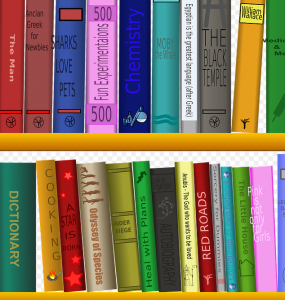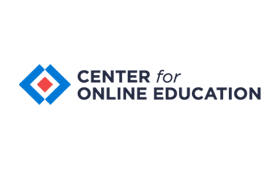Online Education in the News
Online Enrollments Continue to Increase
Research conducted by multiple organizations over the past several years shows that online options continue to grow in popularity, even as overall college enrollment begins to decrease. As educational technologies evolve and new formats for learning emerge online (e.g., certificates, badges, certifications), there will be more opportunities to access education in settings that provide high-quality experiences for students.
- Who
- Colleges and universities, as well as learning organizations such as bootcamps, continue to explore the possibilities of online learning with the latest technologies and teaching strategies.
- What
- Online learning opportunities are often designed to help students reach career-related learning goals. Learning online may include a wide range of experiences both in virtual classrooms and in-person settings (i.e., internships, on-campus labs)
- When
- We look forward to seeing innovative learning opportunities, technologies, and new programs develop throughout the year.
- Where
- Online programs are available from a variety of sources including colleges and universities, professional associations, and independent training organizations. Explore the options in your current industry or area of future interest.
- Why
- Online education’s popularity began with convenience and flexibility it offers students who are also working, raising families, and managing other responsibilities. Advances in teaching strategies and technologies continue to improve the experience for students and the learning they can achieve online.
- More Info
- Follow research organizations, such as the New Media Consortium, and the Online Learning Consortium to stay up to date with the latest trends in online education.
Don’t Miss Dates!

January
National Mentoring Month
Do you have a mentor? Take some time this month to think about who in your network could provide professional guidance. MentorCity describes a mentor as “role model, coach, sounding board, voice of reason, emotional support, counselor, and a trusted resource.” You may also be ready to be a mentor yourself to someone in your community or workplace who is just getting started in school, work, or a local issue of mutual interest. #ThankYourMentor

April 9-15
National Library Week
Sponsored by the American Library Association, National Library Week takes place each April. How have libraries transformed you, your work, or your education? Look for special events and activities offered through your school’s libraries, online and on campus, as well as by your local public library system. #LibrariesTransform

June
National Campus Safety Awareness Month
Even online students occasionally visit a campus location for testing, advising, class meetings, athletic events, and more. The Clery Center works with colleges to create safer environments for students. Check out our Student Safety Guide for safety tips, recommended mobile apps, and additional resources you can use all year. #NCSAM2017

October
National Information Literacy Awareness Month
In today’s world we have access to more information than ever before through print and digital formats, and through a variety of devices such as smartphones. Join the National Forum on Information Literacy’s campaign and improve your skills. Review our guide to Academic Research Online for strategies related to finding, evaluating, and citing resources in your classes.

December 10
Human Rights Day
This day was designated as Human Rights Day in 1950 by the United Nations. The UN asks each of us to “step forward and defend the rights of a refugee or migrant, a person with disabilities, an LGBT person, a woman, a child, indigenous peoples, a minority group, or anyone else at risk of discrimination or violence.” How can you make a difference in your community? #Standup4HumanRights #HumanRightsDay
Academic Deadlines
As a college student, online or on-campus, there are three categories of deadlines you should be aware of, and add to your calendar.
Admissions – Are you thinking about applying to a new program? Many applications require scores from an admissions exam, such as the SAT, GRE, or GMAT. Find out when these tests are administered, deadlines for registration, and how to prepare.
Financial Aid – The FAFSA application is the way to access federal financial aid and the deadline is June 30. Check with your school to find out if there are additional, earlier deadlines for completing the form. If you are offered a scholarship, find out if there are deadlines related to formally accepting the resources, as well as renewing them each semester or year (if applicable).
Course and Program Schedules – Locate your school’s academic calendar so that you will be aware of dates such as the first and last day of classes, deadlines for adding or dropping courses each term, and timeframes for midterm and final exams. There are also deadlines for course registration each semester, so work with your academic advisor to make sure you know which classes to take and when.
